Water testing with Ashbury College
The following blog post was written by our Education Coordinator, Luke. Luke co-led an excursion with Ashbury college last month. Here’s what he has to say about it!
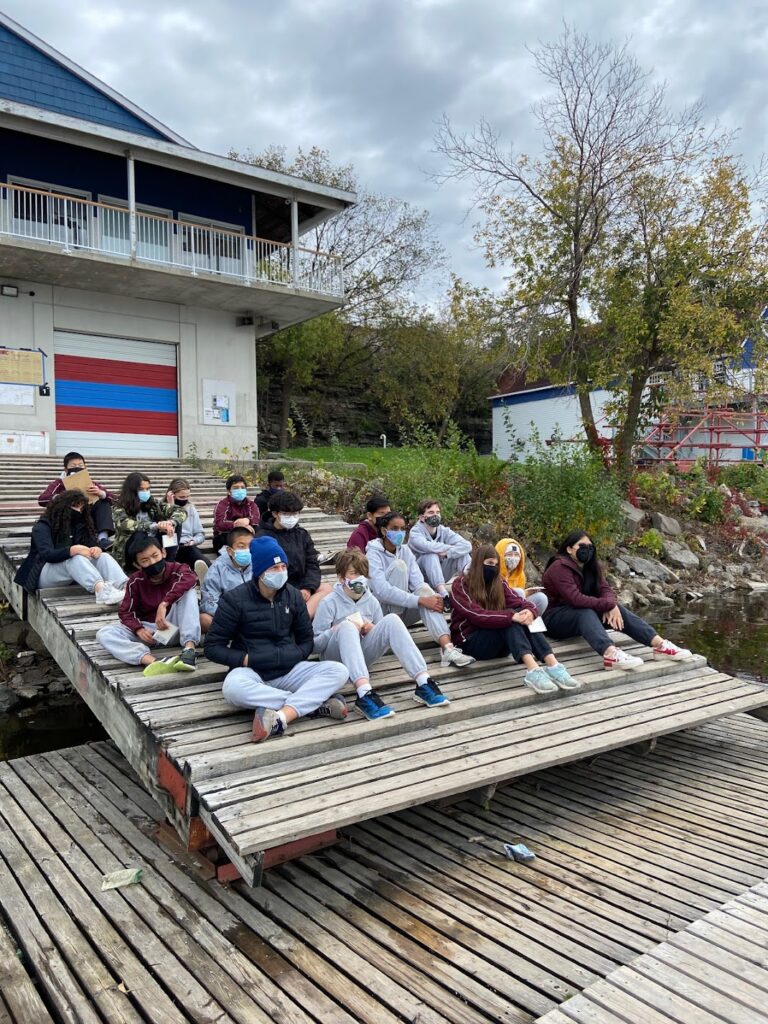
How the day started
Tuesday, October 19th was a busy day. I was co-leading an excursion with students from Ashbury College that afternoon!
I made it down to the shores of the Ottawa River along with my colleague, Laura, to teach grade 8 students from Ashbury.
Junior learners, like the grade 8 students at Ashbury, care about social issues, can connect with abstract concepts, and are empathetic towards environmental issues. Most importantly, these students are usually excited to learn!
Our history with Ashbury
This was not the first time Water Rangers and Ashbury worked together. Over the past four years, Water Rangers has tested with Ashbury students at locations across the city of Ottawa. We even did a shoreline cleanup in 2017! Having missed our regular testing due to the pandemic in 2020, all of us were eager to return this year. We also took the opportunity to show Amy Greig, Head of Junior School Science, and her students our brand new Education Testkit. Funding for resupplies was graciously provided through Natural Sciences and Engineering Research Council (NSERC).
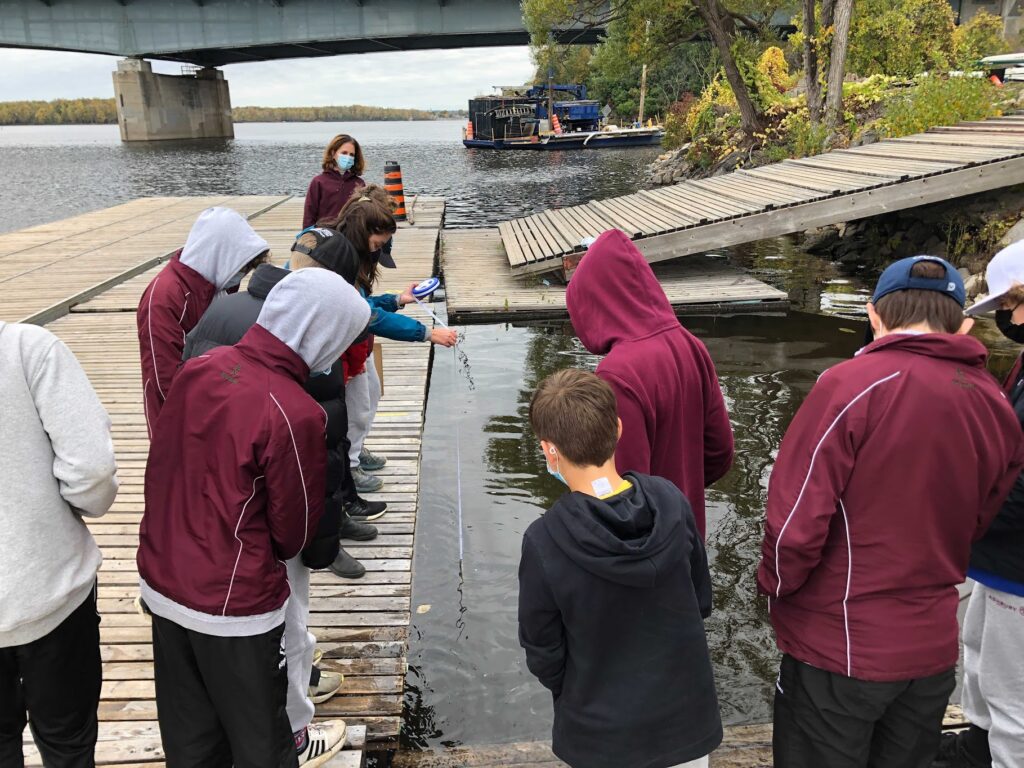
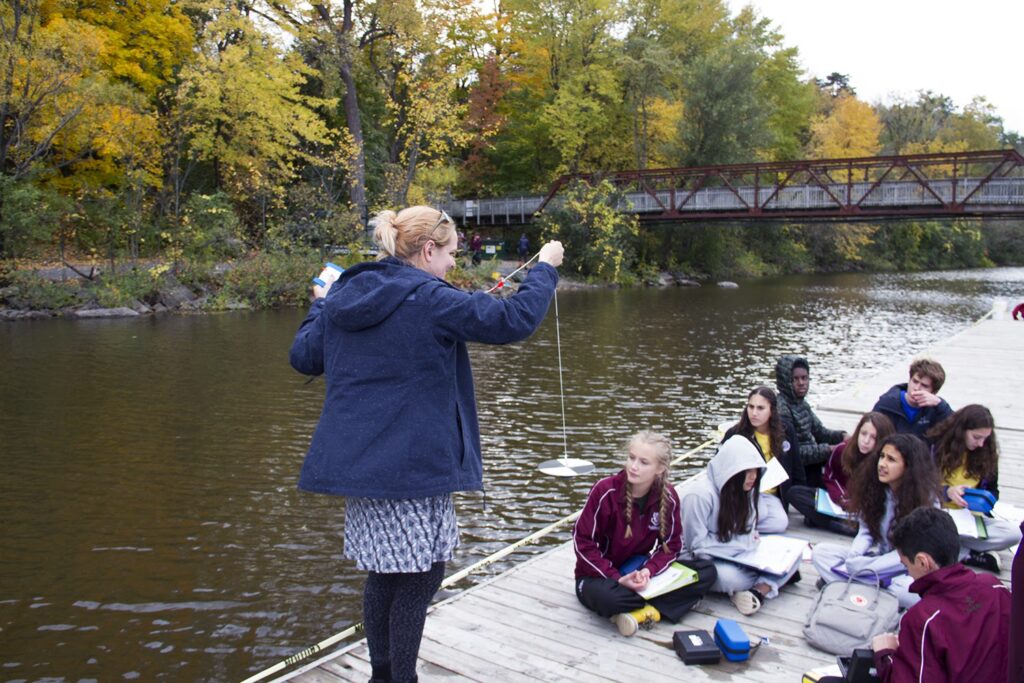
Over 60 students arrived at our testing location at the Ottawa Rowing Club that morning. Despite the cold, energy levels were high and the students were excited. Laura prepared a couple of tables with multiple sets of water testing equipment on each. This allowed the students to work together in groups. The excursion seemed like a typical Water Rangers experience on the surface – but the students were armed with a secret weapon!
Research Skills
A short publication from 2011 called “Research: Why Wait Till High School?” by Phi Delta Kappa International, highlights the importance of developing research skills and promoting active learning with students in elementary school. Research skills are important for all students in high school and become a core competency of post-secondary education. Developing research skills early in students’ lives can help them reach their full potential in the future!
Superstar teachers
The day before the excursion, the excellent educators at Ashbury college took their students through our digital resources. Students explored our online open data platform, learned what was in each of ours kits, and developed a basic understanding about each testing parameter. By doing this, the students engaged in independent research even before heading out to the water.
In Ontario, the kind of active learning Water Rangers does with students is called experiential learning. Experiential learning involves participating in rich experiences, reflecting on those experiences, and then applying what was learnt. You can learn more about how Ontario students are doing experiential learning here.
As Laura wrapped up her second session with students, she handed the reins over to me to lead the last session. It was colder than we expected it to be, and both of us were pretty chilled from the wind. We briefly reflected upon how nice it was to do in-person excursions again over a few pieces of dark chocolate. As the last group of the day arrived, I spoke to them all together to give them a primer for the testing they’d be doing in smaller groups. After a few minutes, they were ready to get started.
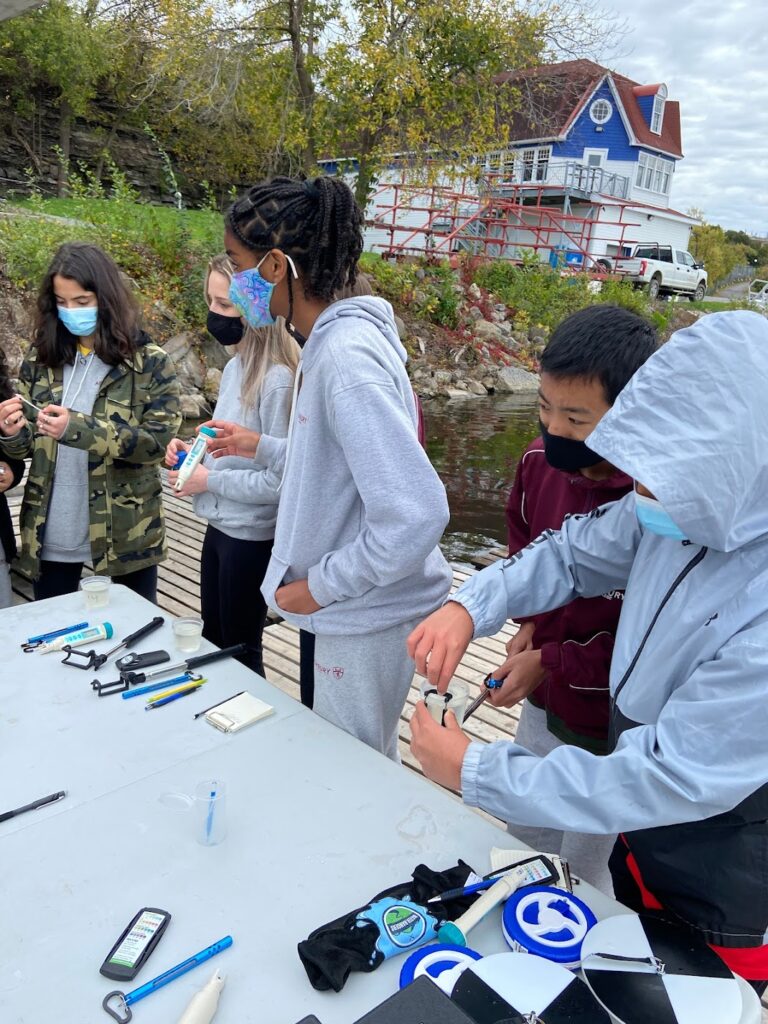
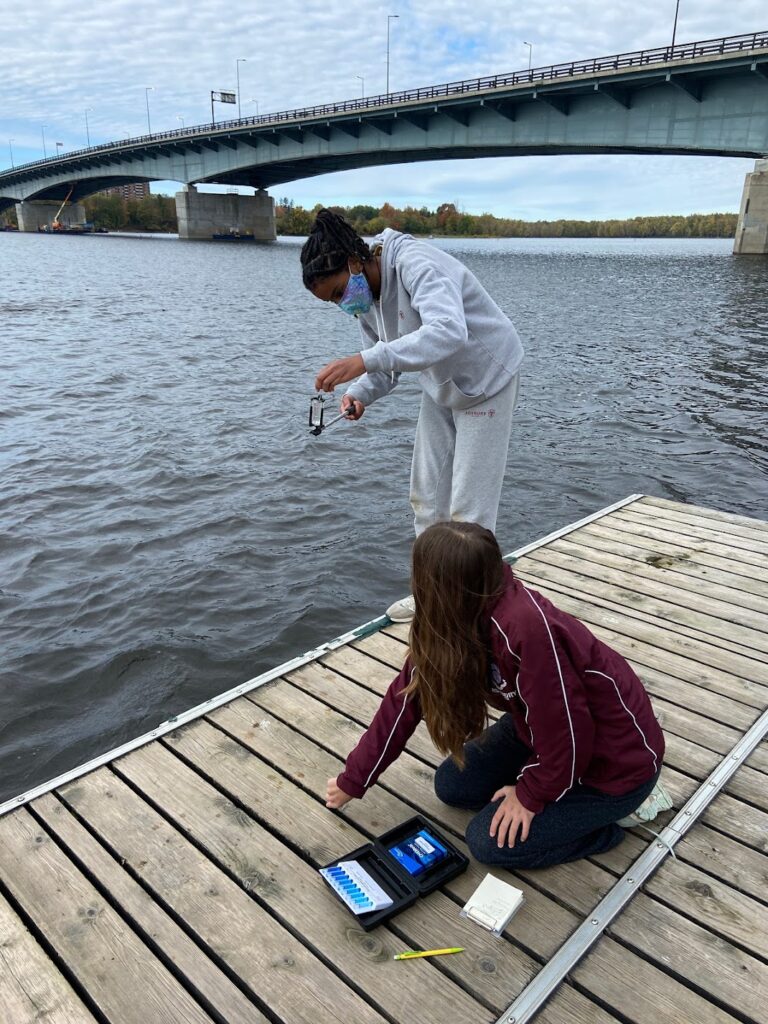
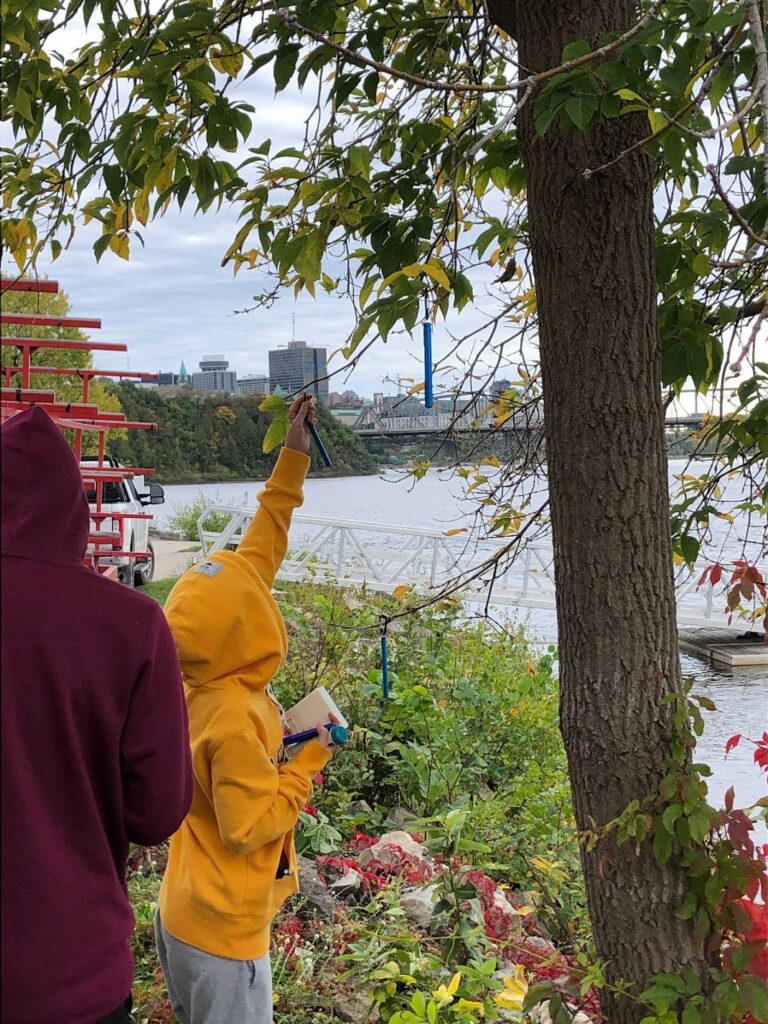
Our approach
Laura and I had decided to split the testing into two blocks so students could “chunk” their experiences. “Chunking” is a basic teaching strategy that helps students retain knowledge! After a short introduction, we started the smaller groups off with temperature, test strips, and conductivity. This meant that each group member had a job to do and a specific amount of time to do it in. Then, we brought the students back together to ask them about their observations and what each one could mean. Regrouping the students and sharing observations really encouraged a culture of learning and engagement, as each group was curious about the other groups’ observations.
The students had time to reflect on their work before the second half of the testing began. We introduced the Secchi disk and the dissolved oxygen kit, and then the groups went off again to test. Many of the students were able to test multiple times at different sites on the water. In doing so, students were able to compare their own results against one another! This is something that Water Rangers testers do over a long period of time on all the water bodies we test.
Reflecting on what was learned
As we brought the smaller groups back together again after testing, I spoke to the students and guided their thinking towards why water testing matters and what their readings might mean. I learned a lot by asking open-ended questions to the grade 8s of Ashbury. I was able to see how well-informed on issues related to water health they really were. As the last students left, I truly believed that they were ready to apply their newly developed knowledge to future experiences.

Special thanks to the faculty of Ashbury College for their collaboration over the course of the summer and fall months to make this excursion possible. Want to book an in-person or virtual excursion or presentation with us? You can do so here!
